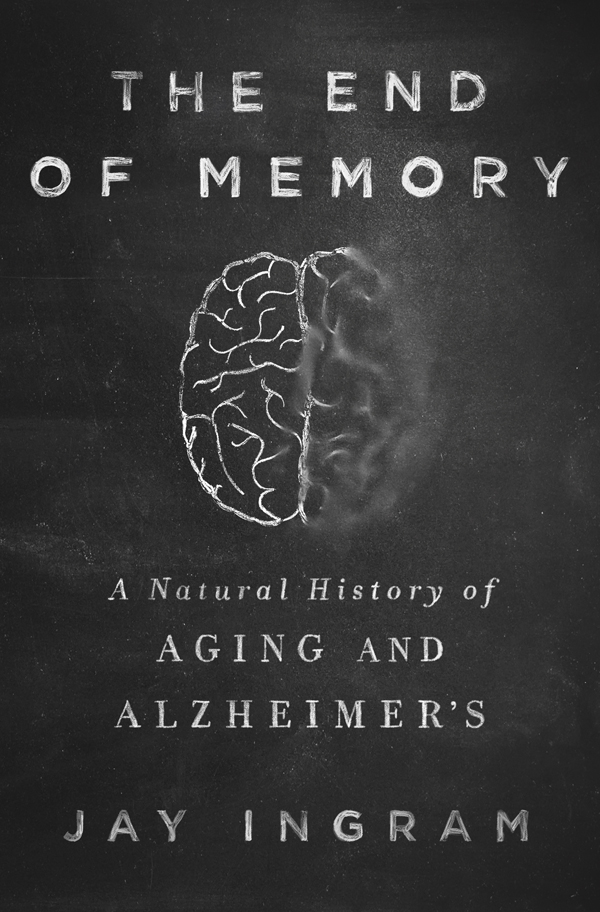
The End of Memory
A Natural History of Aging and Alzheimer's
تاریخچه طبیعی پیری و آلزایمر
کتاب های مرتبط
- اطلاعات
- نقد و بررسی
- دیدگاه کاربران
نقد و بررسی

Starred review from August 31, 2015
In this riveting tale of Alzheimer’s disease, Canadian science writer Ingram (Fatal Flaws) elegantly traces the history of the persistent and devastating ailment and the many medical researchers who have contributed to the public’s understanding of it. Ingram reviews German psychiatrist Alois Alzheimer’s 1901 case study of a 51-year-old patient, which offered insight into the causes of the patient’s “premature symptoms of mental decline.” Reports of Alzheimer’s were largely unappreciated by the medical community, but researchers in the 1960s and 1970s confirmed that the “plaques” and “tangles” Alzheimer found in his patient’s brain provided the explanation for the majority of cases of the disease. With crackerjack storytelling and fast-paced prose, Ingram examines recent research into Alzheimer’s, reporting that loss of synapses in the brain, rather than loss of brain volume, accounts for the majority of cases of the dementia that can accompany Alzheimer’s. While there is no cure for the disease, Ingram observes that social, intellectual, and physical activities have been demonstrated to reduce the risk of developing the disease, and he discusses promising drugs, such as citalopram, that may stop the growth of plaque. Ingram’s first-rate medical writing makes this excellent history a must-read.

June 1, 2015
What science has learned about the brain, aging, and Alzheimer's disease. "Am I going to get it? And if so, when?" For most people, those are the most pressing questions about Alzheimer's. Science writer Ingram (Theatre of the Mind: Pulling Back the Curtain on Consciousness, 2005, etc.), former co-host of Discovery Channel Canada's Daily Planet, knows that scientists cannot answer those questions at the moment, but he offers a cogent and informative history of the disease and overview of current research. Even if the increasing prevalence of obesity and diabetes shortens life expectancy, some scientists predict that 50 percent of children born since 2000 will reach 100 years of age. Many people, therefore, will experience five stages of life: childhood, youth, adulthood, old age, and very old age, motivating scientists' interest in the connection between very old age and memory loss. That interest began in 1906, when Alois Alzheimer discovered curious plaques and tangles in the brain of a woman with early-onset memory loss. But the disease named for him doesn't necessarily present those symptoms in all sufferers, and some people with plaques and tangles never lose their memories. Moreover, researchers have found these structures in autopsies of young people, leading them to look for causes other than aging, such as environment and genetic mutations. While drugs are being developed to prevent or slow memory loss, Ingram identifies some strategies that seem to help: keeping mentally active (the brain, scientists have discovered, is plastic, able to develop new connections); maintaining a low body weight; getting adequate exercise and sleep; and limiting sugar intake. This last recommendation results from research that connects Alzheimer's to "disturbed insulin function in the brain." In clear, accessible, and upbeat prose, Ingram demonstrates his optimism about the possibility of aging with an agile mind, and he is hopeful about finding an effective treatment for sufferers.
COPYRIGHT(2015) Kirkus Reviews, ALL RIGHTS RESERVED.

Starred review from July 1, 2015
Ingram (Fatal Flaws) argues that Alzheimer's disease (AD) is one of the great terrors facing our aging population, along with cancer and heart disease. However, popular understanding of the disease is minimal, based mostly on personal experiences of those who provide care for affected loved ones. Thus, the author sets out to establish a "biography" of the condition, from its first descriptions in medical literature to growing scientific comprehension. A complicated disease with a confusing etiology and an unpredictable pathogenesis makes this a complex task. For example, most AD patients have "plaques" building in various spots of the brain; "tangles," or knotted up dendrites; and a steep decline in neurons. However, some have these features but don't suffer AD, while others endure AD but only possess one of these characteristics. Ingram successfully sifts through a large number of contradictory studies of both causes and treatments and ultimately concludes that even though researchers know a lot more about AD than when it was first identified in 1901, they have much to discover. VERDICT Highly readable and informative, this work is strongly recommended for readers interested in medicine, scientific research or pathology.--Evan M. Anderson, Kirkendall P.L., Ankeny, IA
Copyright 2015 Library Journal, LLC Used with permission.

September 1, 2015
Alzheimer's is a scary disease that wrecks the mind, memory, and sense of self. The illness strikes almost half of those older than 85. Science writer and broadcaster Ingram decrees, You cannot think about aging today without the shadow of Alzheimer's disease intruding. He reviews concepts of growing old, the first reported case of the disease (a 51-year-old woman diagnosed by Dr. Alois Alzheimer), healthy aging of the brain, the pathology of Alzheimer's (amyloid plaques, tau tangles, and a decreased number of neurons), fascinating findings gleaned from a long-term study of Catholic nuns, the odds of getting Alzheimer's, and the treatments currently available (none of which are especially effective). Big heads, brain reserve, the chemical neurotransmitter acetylcholine, and genes get their just due in the discussion. Factors that reduce the chance of Alzheimer's include a high level of education, bilingualism, conscientiousness, and exercise. Type 2 diabetes doubles your risk of Alzheimer's. Ingram reminds us that despite much attention, research, and knowledge of neuroscience, Alzheimer's remains a puzzling, complex, and devastating disorder. An important and informative overview.(Reprinted with permission of Booklist, copyright 2015, American Library Association.)

























دیدگاه کاربران